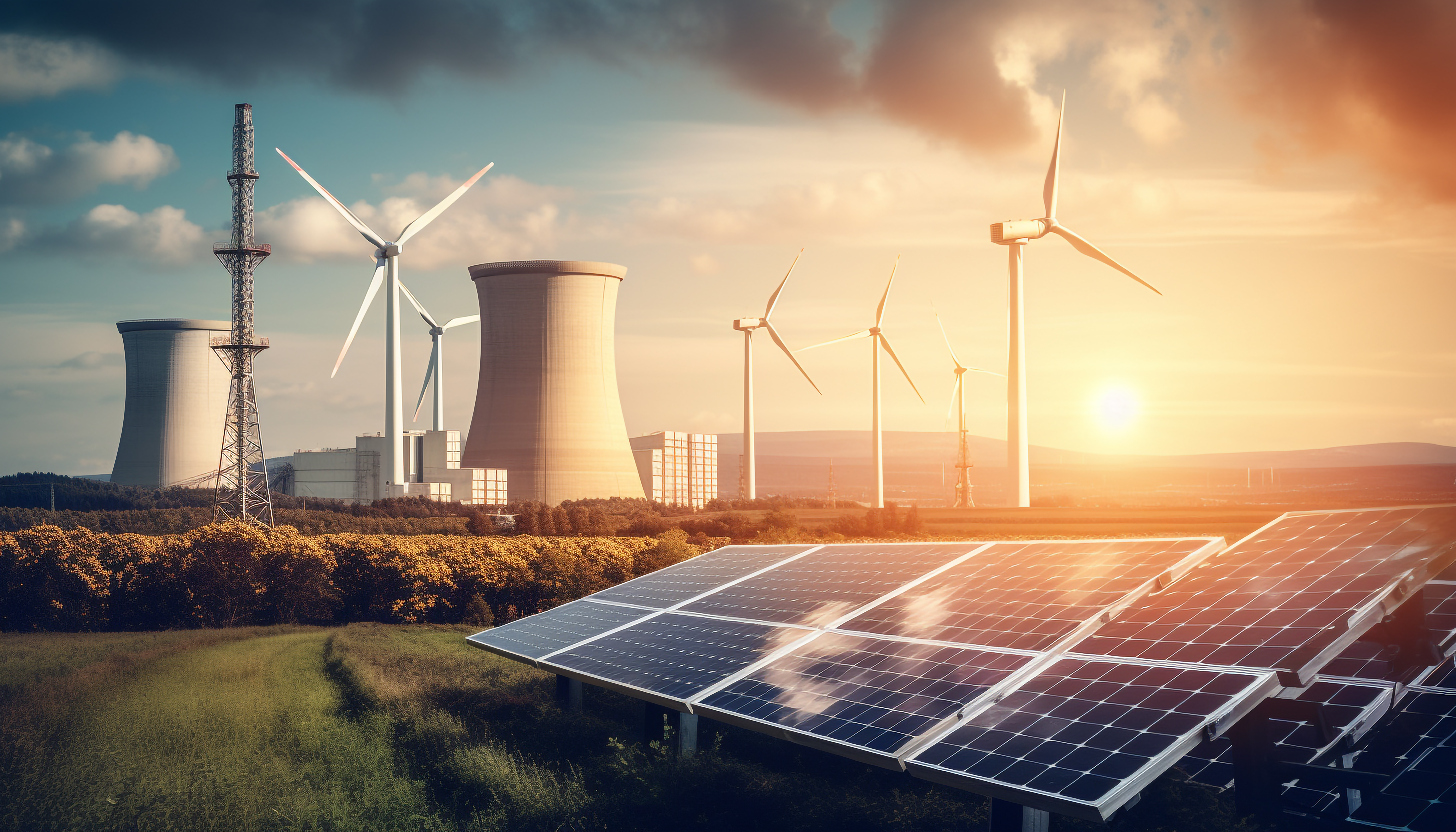Share this
Artificial Intelligence (AI) and the urgent transition to a more sustainable model of production have the potential to alter the energy landscape. These simultaneous changes hold the potential to stimulate economic development through investment, employment, and productivity. Looking ahead to 2030, the energy shift will likely be 10 times higher in terms of investment quantities. These changes will occur in ways that might increase their advantages—or challenges—during that time and beyond. Both will take place in regions that are comparable to one another, most notably China, North America, the EU, and India.
They will likely have access to comparable global capital pools as well. While I notice a great interest in the industry, the hard truth is that there are no off-the-shelf generative AI products for transforming an energy company. However, AI has the potential to radically transform energy systems.
Can AI be used to transform the energy industry?
Yes, but while it holds great promise, solutions will only be as good as the data you feed them with. Here are some potential applications to get inspired by. The possibilities linked to AI and data analysis in the energy sector are huge and technology has the potential to reduce costs dramatically, streamline entire value chains, and help reduce risk and downtime while increasing control and profitability.
Clean Your Data
However, you must first clean your data and present it in a usable format. When it comes to using generative AI for innovation, having access to data that is precise, readily available, and trustworthy is essential. Businesses that invested in comprehensive data management a decade ago, at the onset of machine learning, are ideally positioned to reap the rewards of artificial intelligence. In this article, we provide some brief applications of AI in the energy industry.
AI Applications in Energy
Energy businesses now invest and apply AI and data analysis as ways to overcome obstacles and achieve efficiency. From connecting grids to improving the efficiency in storage and distribution, AI can be used to improve efficiency and improve the functioning of energy systems by optimizing training workloads and inference models.
- Intelligent video analysis based on images and videos from drones and remotely operated devices improves quality assessments and enables engineers and analysts to make better-informed decisions.
- To improve the quality of services and operations, data patterns based on logs from operational sensors and machine data, IoT, and data on how various providers have performed, are employed.
- Artificial Intelligence and data analysis improve demand estimates and minimise project downtime and losses. This covers the utilisation of information from assets, control centres, remote operations, digital twins, and other condition-based monitoring systems.
- New technology is required to tackle developing sectors like environmental and biodiversity compliance, new means of monitoring energy assets and early warning mechanisms can improve the functioning of entire grids. This technology must be found at the convergence of hardware, software, and AI, on the edge, and connected to the cloud to work effectively.
- New approaches to creating digital twins make sense for the sector to move forward by integrating real-time observations, AI simulations, and 3D to improve project planning, execution, and management.
To succeed, it is important to go past the current abilities of the sector, which tend to be segregated. Rather, AI will enable analysts and engineers to adopt co-creation pods with interdisciplinary teams from the fields of software engineering, AI engineering, offshore engineering, and construction. AI will facilitate interdisciplinary work.
AI Can Lead to a more efficient Oil and Gas Sector
AI is a technology that benefits everyone, including the fossil fuel industry just as the internet did. It functions as an equaliser and is already being used by corporations like BP, Shell, and Exxon to reduce the cost of producing gas and oil. The number of EV-powered vehicles is growing and is mostly based on artificial intelligence. This could lower the costs of drivers, improve convenience, and allow the emergence of self-driving vehicles such as Alphabet Inc. ‘s Waymo and General Motors Co.’s Cruise which should soon be available in San Francisco. It will probably take some time for EVs to converge to more advanced batteries, but AI is already allowing advancements in batteries, sensors, and computing across the oil and gas sector as well as the EV sector.
Next Stop: Generative AI
Even while the industry still has a lot of small-scale generative AI capabilities, research is currently moving at a rapid speed. Using deep learning, machine learning and generative AI to manage operations at sea, an AI-powered environmental health monitoring system, or multi-layered data empowered by AI that combines weather forecasts, satellite and drone data, and geospatial remote sensing are a few examples of possible use cases. In this area, companies have already developed concepts that are producing encouraging results.
Getting more accurate results in this context is equally made possible with generative AI that can retrieve data from existing data sets. You can retrieve data from a variety of sources within your domain by combining, for example, Azure Data Manager for Energy data sets with Microsoft Copilot. This allows you to access pertinent information without needing to have any prior knowledge of the underlying data, and it also creates a well-trained private LLM (large language model).
Ready to transform your energy company with SHARON AI? To fully reap the benefits, start by cleaning your data, breaking down data silos, and migrating data and systems to the cloud. Vendors that are furthest ahead, will be able to make better-informed decisions, cut maintenance costs, and automate tasks to increase overall profitability. This is not possible without data centres, hence why SHARON AI will provide you with the necessary infrastructure to begin revolutionising and improving your energy projects.














